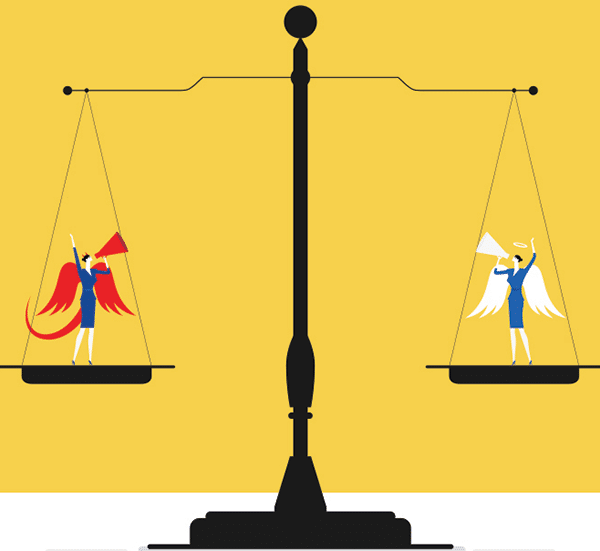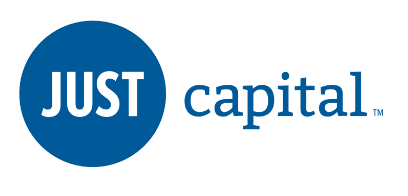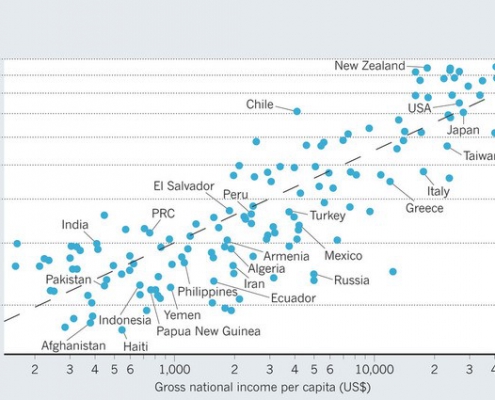Tag Archive for: ethics pays

Meet Alison Taylor, Ethical Systems’ New Executive Director
Blog
Here Is What Replaces Shareholder Primacy
Blog
Company Snapshot: “Don’t Buy Our Products” – Ethics at Patagonia
Case Study, Corporate Culture, PractitionerThe second of three Company Snapshots, these research-based pieces by guest author Jessica Guo look at aspects of successful companies that can be examined for strategy and information of benefit to both active businesses and the academics that study them. See our first company snapshot examining culture and values at Costco.

Company Snapshots: “Don’t Buy Our Products” – Ethics at Patagonia
When asked what he thought made a good company, Yvon Chouinard replied with one word: responsibility.
Despite being the founder of a retail consumer brand company Patagonia, Chouinard is also a conservationist who advocates for anti-consumerism. He believes that Patagonia has “made a contract with our customers to make clothing as responsibly as possible.” To that end, Chouinard actively encourages his consumers to “think twice before you buy a product from us. Do you really need it or are you just bored and want to buy something?”

Prioritizing Social Responsibility in Companies: A coming firestorm?
Blog In a development that Andrew Ross Sorkin of The New York Times believes will cause “a firestorm” in boardrooms across the country, Larry Fink, the CEO of BlackRock has sent a letter to the chief executives of the world’s largest public companies urging them to prioritize their company’s social responsibilities.
In a development that Andrew Ross Sorkin of The New York Times believes will cause “a firestorm” in boardrooms across the country, Larry Fink, the CEO of BlackRock has sent a letter to the chief executives of the world’s largest public companies urging them to prioritize their company’s social responsibilities.
Sorkin writes that this is likely to be a watershed moment for American companies, given BlackRock’s position as one of the largest investors in the world with more than $6 trillion under management through 401(k) plans, exchange-traded funds and mutual funds.

Azish Filabi Interviewed by the American Marketing Association
Blog Ethical Systems CEO Azish Filabi, was interviewed in a far-reaching discussion with Hal Conick published on Marketing News, a publication of the American Marketing Association.
Ethical Systems CEO Azish Filabi, was interviewed in a far-reaching discussion with Hal Conick published on Marketing News, a publication of the American Marketing Association.
In the piece, which covers both the components and traits of an ethical leader as well as how to make ethics front and center in the hiring process and how marketers can be more ethical, Azish connects research with practice, helping identify academic reference points to confirm potential, and profitable, strategies.

A New Paradigm For “Just” Business: JUST Capital publishes its research results
Blog In 1970 Milton Friedman wrote a now famous essay in the NY Times Magazine declaring that the social responsibility of business is to increase its profits. Since then, writers and researchers have been debating whether this accurately reflects the responsibilities of business in society. In the decade since the Global Financial Crisis these debates have become particularly critical, with some participants questioning the basic principles of free market capitalism and whether they serve our current societal needs.
In 1970 Milton Friedman wrote a now famous essay in the NY Times Magazine declaring that the social responsibility of business is to increase its profits. Since then, writers and researchers have been debating whether this accurately reflects the responsibilities of business in society. In the decade since the Global Financial Crisis these debates have become particularly critical, with some participants questioning the basic principles of free market capitalism and whether they serve our current societal needs.
But what if the best way to do right by shareholders was to run a socially responsible business?
New findings by JUST Capital are showing that this is often the case. JUST Capital is a non-profit research organization whose mission is “to build a more just marketplace that better reflects the true priorities of the American people.” Their distinctive research approach began with a survey of the U.S. public on what they believe makes a “JUST” company.

A Long Term Fix for Our Short Term Focus on Corporate Culture and Profits
BlogIn a society and culture that emphasizes the new and the now what does it mean to manage for the long term? If we want what we want when we want it, businesses that take a multi-year perspective may be misaligned with modern expectations by shareholders to maximize profits, almost immediately.
 Today’s businesses have morphed into revenue generators designed to squeeze every ounce of productivity and profit from its people and operations. Many corporate leaders see their role as the facilitator of shareholder enrichment. Coupled with a culture of instant gratification, it is not that shocking to see the reinforcement from the field as to what it means to be a successful enterprise.
Today’s businesses have morphed into revenue generators designed to squeeze every ounce of productivity and profit from its people and operations. Many corporate leaders see their role as the facilitator of shareholder enrichment. Coupled with a culture of instant gratification, it is not that shocking to see the reinforcement from the field as to what it means to be a successful enterprise.
However, a new article in Harvard Business Review by authors Joseph Bower and Lynn Paine of Harvard Business School argues that the entire basis for the popularity of shareholder primacy is deeply flawed and that its growing reliance excludes real opportunities for sustained growth and imperils the broader economy.

Lapsed Priorities: New Survey reveals lack of focus on bribery and corruption
Blog If the following survey results are any indication, a betting man would be doubling down on increased FCPA cases in 2016.
If the following survey results are any indication, a betting man would be doubling down on increased FCPA cases in 2016.
The study by international law firm Hogan Lovells and reported in the International Business Times highlights that, for over half of multinational companies, fighting bribery and corruption does not feature as a main priority.
The piece reveals that old habits die hard. A focus on short term sales goals, making deadlines/sales quotas and operating in areas where bribery runs rampant contribute to a casual attitude towards maintaining ethical behavior and staying true to internal values and external regulations.

Earthquakes and Shaky Ethics: The Perils of Construction Corruption
Blog A study in Nature shows that our planet has a lot to teach us about business ethics. While we know that ethics pays, what is also now clear is that the absence of ethics can kill.
A study in Nature shows that our planet has a lot to teach us about business ethics. While we know that ethics pays, what is also now clear is that the absence of ethics can kill.
Nicholas Ambraseys of the Department of Civil and Environmental Engineering, Imperial College London and Roger Bilham from the Cooperative Institute for Research in Environmental Sciences and the Department of Geological Sciences at the University of Colorado, Boulder compared deaths from earthquakes and found that “83% of all deaths from building collapse in earthquakes over the past 30 years occurred in countries that are anomalously corrupt.” This is all the more staggering when you consider that the researchers removed any contributing factors, such as poor building materials, from their analysis.
The construction industry is an industry both highly valued and highly susceptible to corruption. Governments, regulators, businesses and workers all have a vested interest in reducing and eliminating bribery and other practices that put people at risk. Without a systemic approach to reducing corruption and improving ethics, it won’t just be buildings that crumble; trust, stability and the long-term viability of a governmental body also risk imminent collapse.

Buddha Makes the Business Case for Business Ethics
Blog Part 1 of 2 on my talk at the 2015 Aspen Ideas Festival.
Part 1 of 2 on my talk at the 2015 Aspen Ideas Festival.
In just the last few years, there has been a lot of new research showing when and why ethics pays. I recently pulled this evidence together for a talk I gave at the Aspen Ideas Festival. I set up the argument by quoting Buddha’s version of the business case:
Set your heart on doing good.
Do it over and over again, and you will be filled with joy.
A fool is happy until his mischief turns against him.
And a good man may suffer until his goodness flowers.
